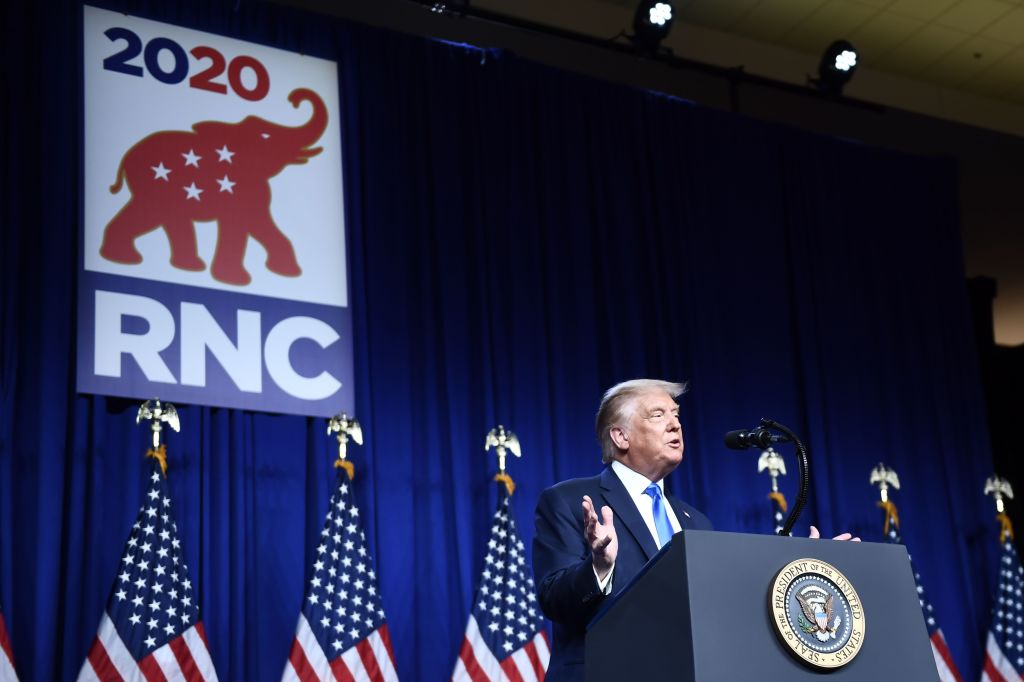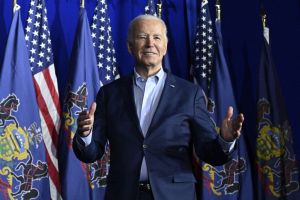The Republican National Convention kicks off Monday in the hope of offering voters an alternative to the unfocused, self-serving Democratic counterpart that took place last week. President Trump’s best chance of accomplishing this lies in following the blueprint of a speech he gave in Pennsylvania this past Thursday.
The Democratic party’s convention attempted to appeal to everyone and thus appealed to no one, stacking excessively woke and anti-American screeds in the daytime with establishment figures giving vapid, hyperbolic anti-Trump speeches during the primetime national broadcast. Missing was an expression of a cohesive policy platform, which would seem key in a year where a division between the moderates and progressive left defined the primary.
This week may be Trump’s last opportunity to hurdle this issue on the right. As our editorial staff wrote in the September magazine, Trump’s ‘slapdash approach to governance has allowed almost anyone to claim the “Trumpist” banner, for at least a moment: Steve Bannon and John Bolton, Jeff Sessions and Nikki Haley, Lindsey Graham and Josh Hawley, Tucker Carlson and Ivanka Trump.’ He can boldly and unapologetically lay down the framework for the future of the party or allow it to revert to its pre-2016 neoliberal fecklessness: corporate worship, capitulation to the left, warmongering, and other policies, that appeal to an ever-shrinking coalition of voters.
Trump nailed the moment during his Pennsylvania speech, which he delivered just hours before Biden, a native of the swing state, accepted the Democratic party presidential nomination. In an appeal to the blue collar base that once voted for Obama, he accused Biden of ‘abandoning’ his home state to cater to ‘privileged, liberal hypocrites’, pointing to the decimation of manufacturing jobs that took place during the Obama administration:
‘Biden supported every single globalist attack on Pennsylvania workers: NAFTA; China’s entry into the World Trade Organization, which built China into a power; TPP; Korea; the horrible, ridiculous Paris Climate Accord, which stripped our nation of its energy; and the so-called Clean Power Plan.’
Free traders in the Republican party would quickly do the same unless Trump makes a clear statement of party principles at the convention. And Biden recognizes that pro-blue collar manufacturing is an appealing message; it’s why he pinched Trump’s ‘Buy American’ language for part of his campaign platform.
[special_offer]
The second-term agenda Trump released Sunday night similarly had plenty to appeal to the growing nationalist populist wing of the party that will carry the mantle of ‘Trumpism’ after he is gone: tax credits for businesses that manufacture in the US, cutting drug prices, stopping endless wars, ending sanctuary cities, punishing businesses that replace Americans with foreign workers, and supporting the police. These are winning policies for sensible, everyday Americans and would contrast nicely with the DNC’s ‘orange man bad’ platform.
There’s still much room for improvement at the RNC. Trump’s second term agenda did not make any mention of family policy — paid family leave or affordable childcare, for example — or the opioid epidemic, which has ravaged rural communities and was a focus for first lady Melania Trump during the administration’s first term. The agenda also did not mention the Second Amendment, but the RNC has dutifully recruited Mark and Patricia McCloskey to speak about how they used firearms to defend their home from Black Lives Matter protesters. It did not mention abortion, but Abby Johnson, a former Planned Parenthood worker will speak on Tuesday night of the RNC. Finally, also notably absent from the agenda is any mention of religious liberty, a hot button issue given churches across the country have been shut down due to COVID-19 while riots rage in the streets. Meanwhile, quite a few of the speakers leave something to be desired: Amb. Nikki Haley is hardly a trustworthy spokeswoman for Trump, even if she did serve in his administration, and do we really need to hear from six members of Trump’s family as he tells us he wants to ‘drain the swamp’?
Still, what has been released so far is promising. It suggests Trump understands the importance of presenting a coherent vision for America in the face of a Democratic party that has refused to address its own fractures or learn any lessons from its blindsiding loss in 2016.


















